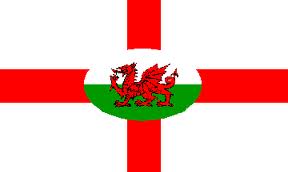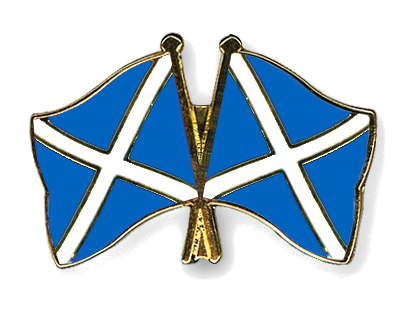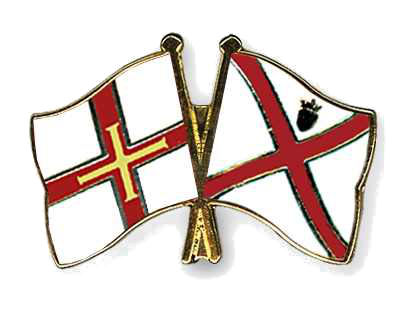Email: info@gmjones.org
If you have Skype installed,
click here.

Grant Jones - a British arbitrator,
London based, with an interest
in trust arbitration.
Key:-
Ancient & Modern British Statutory Arbitration Law.
Concentrating on the two major British arbitration jurisdictions, (i) England & Wales (& in effect that in bygone times included the whole of Ireland) & (ii) Scotland, relevant British arbitration law is reproduced below-
We have the very first reference to arbitration in an Act of 1598, referring to the choice an individual can make between arbitration (that is 'friends') & the courts. Thereafter there is a later reference, often incorrectly referred to as the first Scottish or indeed British statutory reference to arbitration, the 1695 Articles of Regulation. The 1695 Articles of Regulation seek to preclude court involvement by way of appeals from an arbiter. The first modern Scottish arbitration statute was the Arbitration (Scotland) Act 1894.
Act of 1598
Act of 1598 - Anent Removing & Extinguishing of Deidlie Feidis [The parties were required] to submit to "tua or thrie friendis on ather side or to subscryve ane submission formit and sent be his majestie to thame to be subscryvit" [ie a choice between arbitration and the courts]
Articles of Regulation 1695
Article 25
That for the cutting off of groundless and expensive pleas and processes in time coming, the Lords of Session sustain no reduction of any decreet arbitral [award in modern English] that shall be pronounced hereafter on a subscribed submission at the instance of the parties submitters, upon any cause or whatever, unless that of corruption, bribery, or falsehood to be alleged against the judges arbitrators, who pronounced the same.
Arbitration (Scotland) Act 1894
(57 and 58 Vict. C 13)
3rd July 1894 (as amended)
1. From and after the passing of this Act, an agreement to refer to arbitration shall not be invalid or ineffective by reason of the reference being to a person not named, or to a person to be named by another person, or to a person merely described as the holder for the time being of any office for appointment.
2. Should one of the parties to an agreement to refer to a single arbiter refuse to concur in the nomination of such arbiter, and should no provision have been made for carrying out the reference in that event, or should such provision have failed, an arbiter may be appointed by the court, on the application of any party to the agreement, and the arbiter so appointed shall have the same powers as if he had been a duly nominated by all other parties.
3. Should one of the parties to an agreement to refer to two arbiters refused to name an arbiter, in terms of the agreement, and should no provision have been made for carrying out the reference in that event, or should such provision have failed, an arbiter may be appointed by the court, on the application of the other party, and the arbiter so appointed shall have the same powers as if he had been duly nominated by the party so refusing.
4. Unless the agreement to refer shall otherwise provide, arbiters shall have power to name an oversman [umpire] on whom the reference shall be devolved in the event of their differing in opinion. Should the arbiters fail to agree in the nomination of an oversman, the court may on the application of any party to the agreement, appoint an oversman. The decision of such oversman, whether he has been named by the arbiters or appointed by the court, shall be final.
5. ...
6. For the purposes of this Act, the expression "the court" shall mean any sheriff having jurisdiction or any Lord Ordinary of the Court of Session, except that where -
(a) any arbiter appointed is; or
(b) in terms of the agreement to refer to arbitration an arbiter or oversman to be appointed must be,
a Senator of the College of Justice, "the court" shall mean the Inner House of the Court of Session.
NOTE: The Arbitration (Scotland) Act 2010 repeals the 1894 Act in its entirety & also the Acts of 1972 (s.3 only) & 1975 (only insofar as affects Scotland).
Thought to be the oldest fully fledged European arbitration statute & in reality the first British arbitration statute, the 1697/8 (William III) "An Act for determining Differences by Arbitration. Chapter XV. Rot.Parl. 9 Gul. III.p.3. n.5" is reproduced below-
Recital that References made by Rule of Court have contributed to the Ease of the Subject Merchants, &c., where Remedy only by Personal Action or Suit in Equity, may agree that Award may be made a Rule of Court, and may insert the same in their Submission.
Whereas it hath been found by Experience That References made by Rule of Court have contributed much to the Ease of the Subject in the determining of Controversies because the Parties become thereby obliged to submitt to the Award of the Arbitrators under the Penalty of Imprisonment for their Contempt in case they refuse Submission Now for promoting Trade and rendring the Awards of Arbitrators the more effectual in all Cases for the final Determination of Controversies referred to them [by (fn. 1) ] Merchants and Traders or others concerning Matters of Account or Trade or other Matters Be it enacted by the Kings most Excellent Majesty by and with the Advice and Consent of the Lords Spiritual and Temporal and Co[m]mons in Parliament assembled and by Authority of the same That from & after the Eleventh Day of May which shall be in the yeare of our Lord One thousand six hundred ninety eight Itt shall and may be lawfull for all Merchants and Traders & others desiring to end any Controversie Suit or Quarrel Controversies Suits or Quarrels (for which there is no [other (fn. 1) ] Remedy but by Personal Action or Suit in Equity) by Arbitration to agree that their Submission of their Suit to the Award or Umpirage of any person or persons should be made a Rule of any of His Majesties Courts of Record which the Parties shall choose and to insert such their Agreement in their Submission or the Condition of the Bond or Promise whereby they oblidge themselves respectively to submitt to the Award or Umpirage of any Person or Persons which Agreement being so made and inserted in their Submission or Promise or Condition of their respective Bonds shall or may upon producing an Affidavit thereof made by the Witnesses thereunto or any one of them in the Court of which the same is agreed to be made a Rule & reading and filing the said Affidavitt in Court be entred of Record in such Court and a Rule shall thereupon be made by the said Court that the Parties shall submitt to & finally be concluded by the Arbitration or Umpirage which shall be made concerning them by the Arbitrators or Umpire pursuant to such Submission And in case of Disobedience to such Arbitration or Umpirage the Party neglecting or refusing to performe and execute the same or any part thereof shall be subject to all the Penalties of contemning a Rule of Court when hee is a Suitor or Defendant in such Court and the Court on Motion shall issue Processe accordingly which Processe shall not be stopt or delayed in its Execution by any Order Rule Co[m]mand or Processe of any other Court either of Law or Equity unlesse it shall be made appeare on Oath to such Court that the Arbitrators or Umpire misbehaved themselves and that such Award Arbitration or Umpirage was procured by Corruption or other undue Means.
II. Arbitration unduly procured, void.
And be it further enacted by the Authority aforesaid That any Arbitration or Umpirage procured by Corruption or undue Means shall be judged and esteemed void and of none Effect and accordingly be sett aside by any Court of Law or Equity so as Complaint of such Corruption or undue Practise be made in the Court where the Rule is made for Submission to such Arbitration or Umpirage before the last Day of the next Terme after such Arbitration or Umpirage made and published to the Parties Any thing in this Act contained to the contrary notwithstanding.
In 'Laws & Other Legalities of Ireland 1689--1850', by Brown & Donlon, it is argued that the 'Act for determining Differences by Arbitration', also applied to Ireland & indeed still applied up till 1910.
Arbitration Act 1889
The first modern English Arbitration Act can be thought of as the 1889 English Arbitration Act.















































































